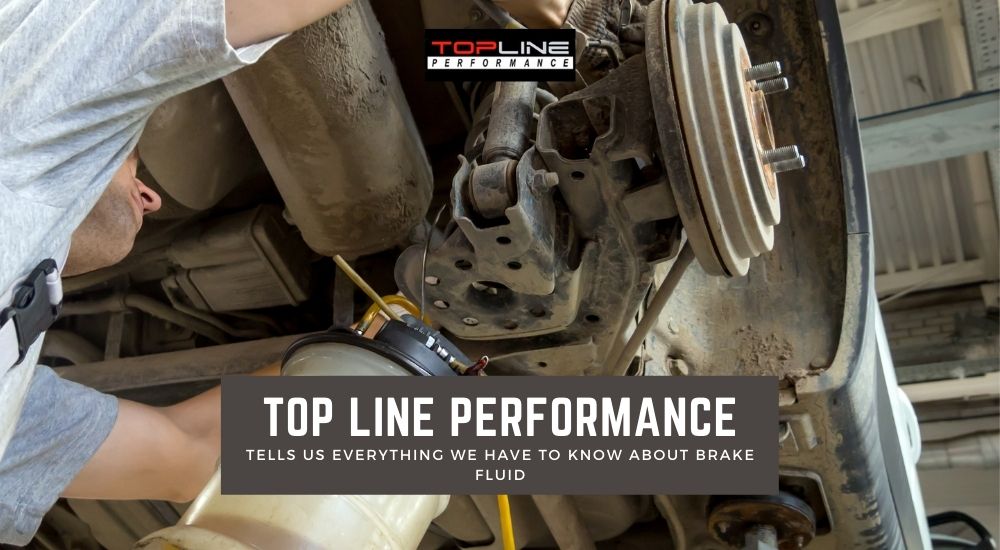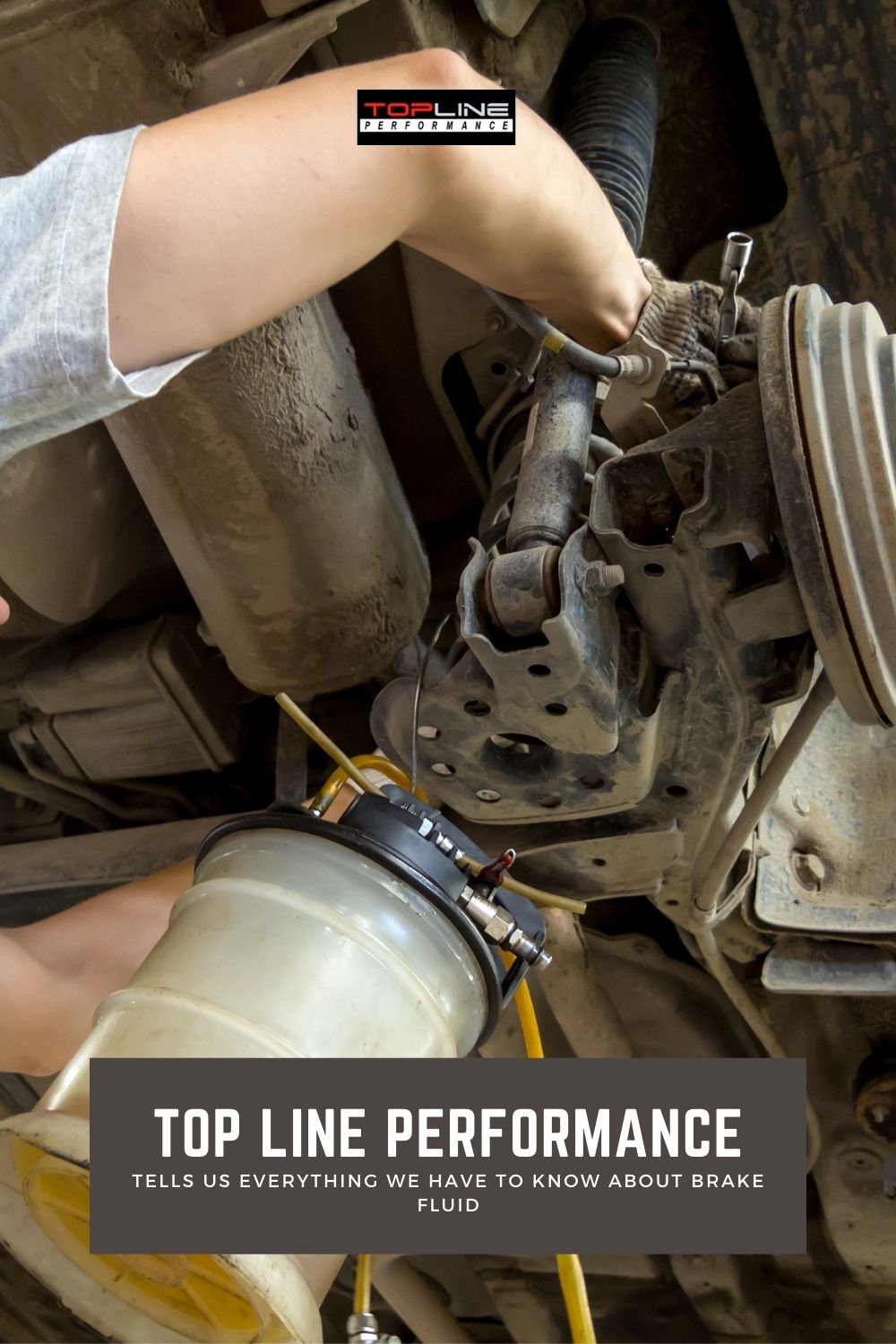If you've ever thought about how crucial a car's braking system is, you're definitely not alone. It's one of the most critical safety features in any vehicle. At Top Line Performance, an auto repair shop located in Huntington Beach, California, they understand just how essential brake fluid is to keeping your braking system running smoothly. Without proper brake fluid, your vehicle wouldn't be able to stop effectively, putting both you and other road users at risk.  Brake fluid is a type of hydraulic fluid used in the braking system to ensure that pressing the brake pedal activates the brake pads on the wheels, ultimately bringing your vehicle to a halt. Besides acting as a lubricant, brake fluid also serves as an anti-corrosive agent, helping to protect the internal components of your braking system from wear and tear. However, over time, brake fluid can degrade, leading to potential issues that could compromise your safety on the road.  One of the most common issues with brake fluid is contamination, particularly from moisture. While older models faced significant challenges with moisture intrusion through brake hoses, modern advancements have largely mitigated this problem. Nowadays, moisture-related issues are less frequent thanks to improved brake hose materials and precise testing methods that help determine when brake fluid needs replacing. However, the real culprits behind brake fluid problems are often the levels of dissolved copper and the degradation of the fluid's additive package. Dissolved copper levels indicate the health of the brake fluid's additive package, which includes anti-corrosion inhibitors, anti-wear agents, and other protective compounds. When the additive package begins to break down, corrosion within the braking system can occur, leading to performance issues and costly repairs if left unchecked.  While the brake fluid itself doesn’t corrode, the additive package within it plays a vital role in preventing corrosion of internal brake components. Over time, as the additive package degrades, the fluid loses its ability to protect against corrosion, making the braking system more susceptible to damage. This corrosion can lead to reduced braking efficiency, increased wear on parts, and potentially dangerous situations on the road.  Manufacturers mix specific additives into brake fluid to enhance its performance and longevity. These additives typically include anti-corrosion inhibitors, anti-wear agents, and viscosity stabilizers. As your vehicle operates, these additives gradually blend with the brake fluid and wear down, diminishing the fluid’s effectiveness. When the additive package is depleted, the brake fluid becomes less effective at protecting your braking system, necessitating regular maintenance checks and replacements. Several factors contribute to the depletion of the additive package, including frequent high-temperature exposure during braking, overuse of brakes under heavy loads, stop-and-go driving, and the use of low-quality brake fluids. Each of these scenarios accelerates the breakdown of the additive package, increasing the likelihood of corrosion and other issues.   Over time, brake fluid absorbs moisture from the surrounding environment, which can degrade its performance and compromise your braking system. To prevent this, it's essential to periodically replace the brake fluid with fresh fluid to maintain optimal performance. Many automotive experts recommend replacing brake fluid every one to two years, although specific intervals may vary depending on your vehicle’s make and model. Always refer to your car’s manufacturer guidelines for the recommended maintenance schedule. If you’re unsure about when to change your brake fluid or experience concerns about your braking system, don’t hesitate to reach out to professional auto repair shops like Top Line Performance in Huntington Beach. They can conduct thorough inspections and address any issues before they become major problems.  There are several misconceptions floating around about brake fluid that can mislead car owners. Let’s clarify some of the most prevalent myths: This is incorrect. While moisture was once a concern, modern brake hose technology has virtually eliminated this issue. The real problem lies in the degradation of the additive package rather than moisture alone. False. Even with modern advancements, brake fluid should be replaced when copper levels reach 200 PPM or higher. This replacement helps restore the fluid’s additive package and its protective capabilities. Not true. Simply replacing the fluid in the master cylinder doesn’t adequately flush out the entire system. A full flush ensures that all old fluid is removed and replaced with fresh fluid containing the necessary additive package. Incorrect. During a brake fluid exchange, most of the old fluid is typically removed, starting with the master cylinder and then from each wheel as per the manufacturer’s specifications. Testing strips are used to confirm that copper levels are minimal or nonexistent. This is false. If the ABS system restricts fluid flow, technicians can use diagnostic tools to activate the system while introducing fresh fluid, ensuring everything functions correctly.  Remember, maintaining your brake fluid is not just about convenience; it’s about ensuring your safety and the longevity of your vehicle. If you notice any signs of trouble—such as spongy brake pedals, unusual noises, or reduced stopping power—it’s time to visit a reputable repair shop like Top Line Performance in Huntington Beach. Their skilled technicians can diagnose and resolve any issues promptly, giving you peace of mind on the road. Aluminum Sheet Metal,aluminium profile fabrication,Aluminium perforated Square Hollow Section,Anodizing Aluminium Hollow Section Dongguan Shangen Precision Metal Plate Co., Ltd. , https://www.shangenmetal.com
A Huntington Beach Car Repair Shop Explains What Brake Fluid Really Does
Frequent Brake Fluid Problems
Understanding Brake Fluid Corrosion
The Role of the Brake Fluid Additive Package
Common Causes of Additive Package Breakdown:
How Often Should You Replace Brake Fluid?
Debunking Common Brake Fluid Myths
Myth No. 1: Moisture is the primary issue with old brake fluid.
Myth No. 2: You never need to change brake fluid.
Myth No. 3: Changing the fluid in the master cylinder is sufficient.
Myth No. 4: You can’t remove more than half of the brake fluid in the system.
Myth No. 5: Your car’s ABS system will malfunction after a brake fluid change.
